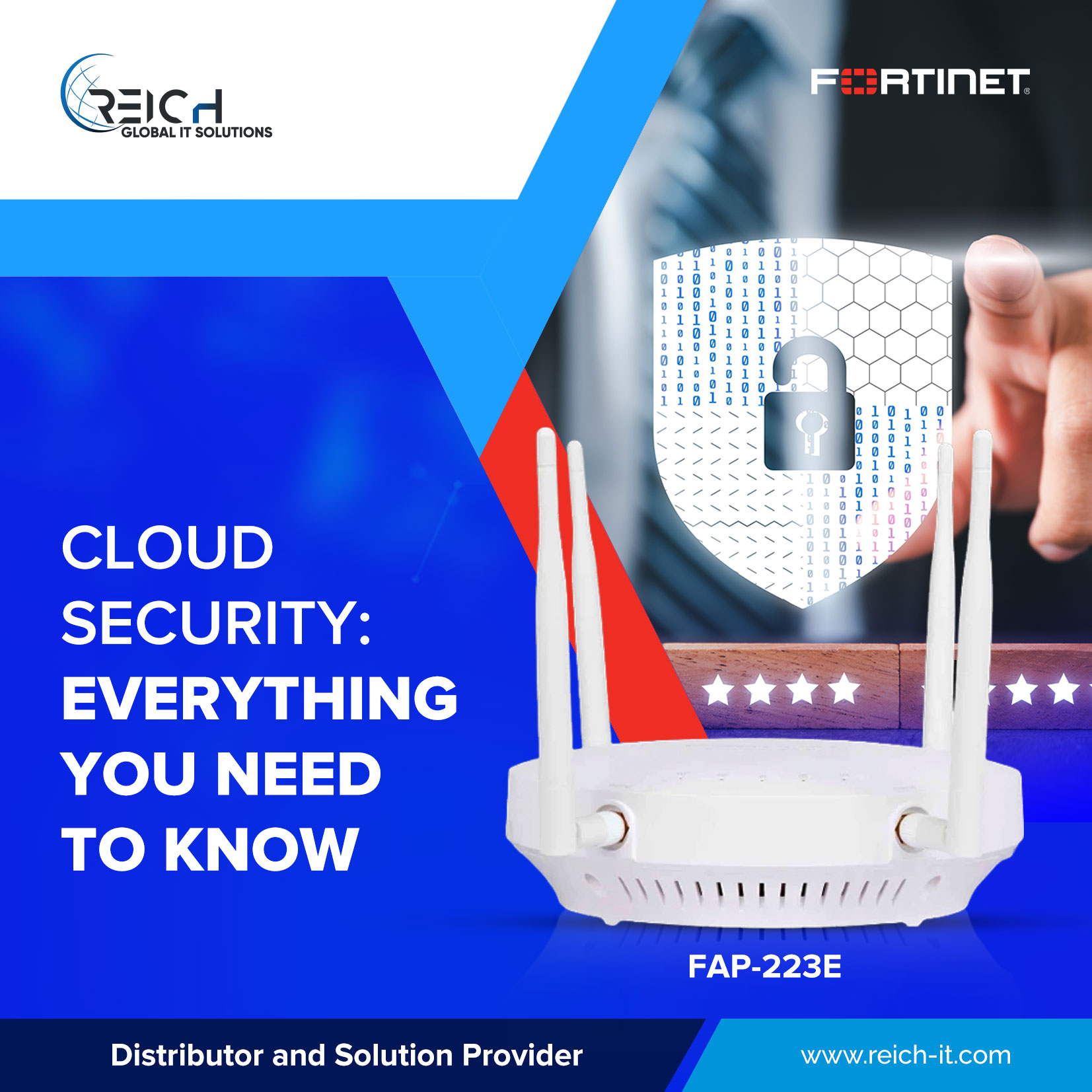Blogs
Cloud Security: Everything You Need to Know

It is impossible to overestimate the significance of having strong cloud security measures in place as more and more enterprises move their activities to the cloud. Although cloud computing provides unmatched scale and flexibility, it also presents special security challenges. We cover all you need to know about cloud security here, from the basics to sophisticated tactics, and everything in between that only a skilled Fortinet supplier in Dubai can explain.
Fundamentally, cloud security is about safeguarding apps, data, and virtual infrastructure. A fundamental idea that emphasizes the separation of security duties between cloud service providers (CSPs) and the companies who use their services is the shared responsibility model. While CSPs secure the infrastructure, customers are responsible for securing their data and applications.
Critical Aspects of Cloud Security
- Encryption
It involves converting data into a coded format that can only be deciphered with the appropriate encryption key. Both data in transit and data at rest should be encrypted to prevent unauthorized access. Implementing robust encryption protocols ensures that even if a breach occurs, the compromised data remains indecipherable to unauthorized entities.
- Identity and Access Management (IAM)
IAM is a critical aspect of cloud security that focuses on controlling and managing user access to resources. Implementing strict access controls, least privilege principles, and multifactor authentication enhances security. Regularly reviewing and updating user access privileges ensures that only authorized individuals have the necessary permissions, minimizing the risk of insider threats.
- Securing Cloud Infrastructure
It involves a combination of network security, application security, and configuration management. Network security measures, such as Fortinet firewall products and intrusion detection systems, protect against external threats. Application security involves securing code and ensuring that only authorized applications run on the cloud. Regularly auditing and validating the configuration settings of cloud services is crucial for identifying and remedying potential vulnerabilities.
- Continuous Monitoring and Incident Response
Automated tools can detect abnormal activities, unauthorized access, or potential security breaches in real time. An effective incident response plan, detailing the steps to be taken in case of a security incident, is equally crucial. Timely identification and response to security incidents can mitigate potential damage and prevent further compromise.
- Compliance and Regulatory Considerations
Many industries are subject to stringent regulations governing data protection and privacy. When utilizing cloud services, businesses must ensure compliance with relevant regulatory frameworks. Cloud security solutions should be aligned with industry-specific compliance requirements to avoid legal ramifications and safeguard sensitive information.
Cloud security is a multifaceted endeavor that demands a comprehensive and proactive approach. From fundamental principles like encryption and IAM to advanced strategies such as continuous monitoring and incident response, businesses must implement a layered security architecture to navigate the challenges of the virtual realm. By staying informed, adopting a security-first mindset, and consulting with trusted Fortinet supplier in Dubai, organizations can leverage the benefits of cloud computing while safeguarding their digital assets from potential threats.



